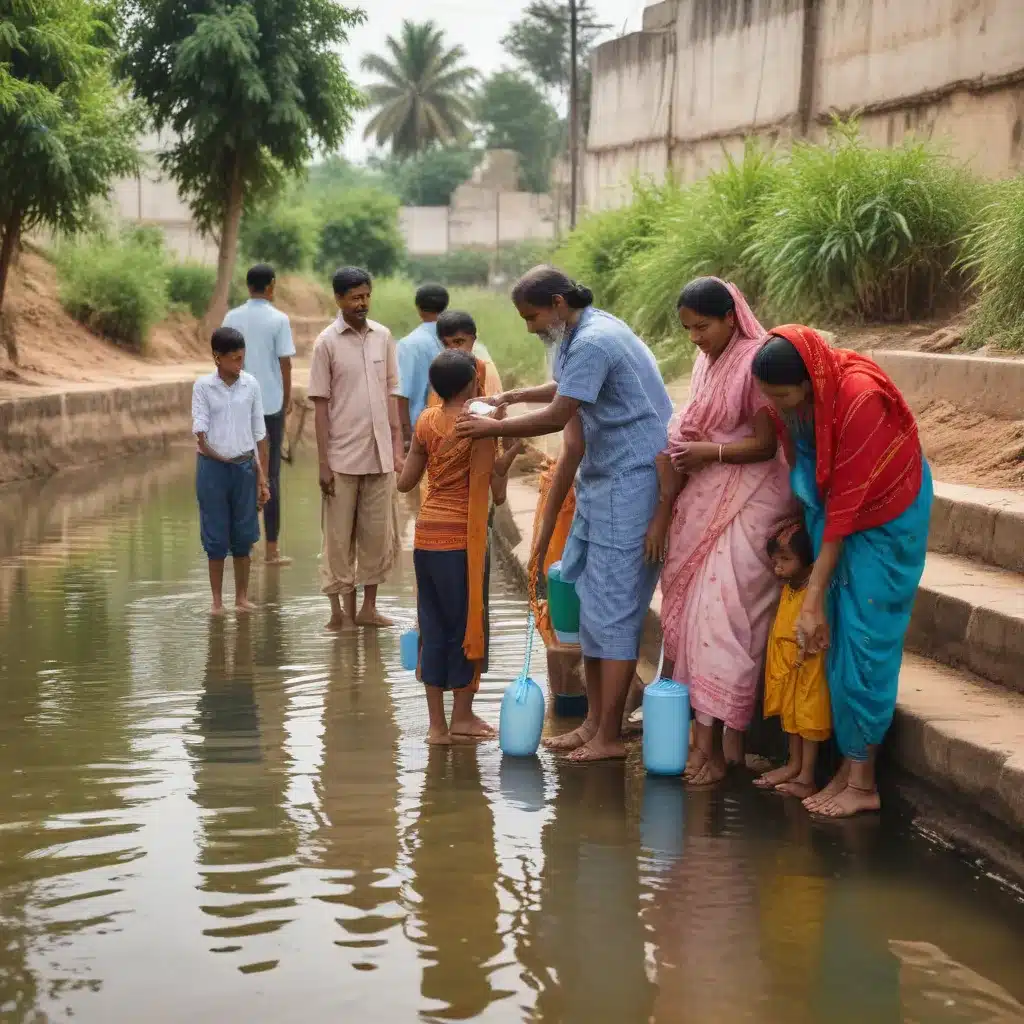
The Importance of Safe Water Access in Urban India
Access to safe drinking water is a fundamental human right and a critical component of sustainable development. In India, rapid urbanization and population growth have placed immense strain on water resources, leading to significant water quality and availability challenges, particularly in cities like Hyderabad. Despite improvements in municipal water infrastructure, many residents continue to rely on alternative, often unregulated, water sources that may be contaminated with harmful pathogens or chemicals.
Addressing water quality issues requires a multifaceted approach that engages both government agencies and local communities. One promising strategy is the implementation of community-based water monitoring initiatives, which empower residents to assess the safety of their water supplies and advocate for necessary improvements. These grassroots efforts not only promote water security but also foster a sense of ownership and stewardship within the community.
The Role of Community-Based Water Monitoring
Community-based water monitoring initiatives are founded on the principle that local residents have a vested interest in the quality of their water and are well-positioned to identify and address issues within their communities. By involving residents in the testing and monitoring of water sources, these programs can generate valuable data on water quality, raise awareness of water-related health risks, and catalyze community-driven action to improve water infrastructure and management.
Empowering Residents through Water Quality Assessments
One of the key components of community-based water monitoring is the training and equipping of residents to conduct water quality assessments. This process typically involves providing community members with testing kits and relevant technical knowledge to analyze the physical, chemical, and microbiological parameters of their water sources. By engaging directly in the testing process, residents gain a deeper understanding of the water challenges facing their community and acquire the skills to advocate for change.
Raising Awareness and Promoting Behavioral Change
Community-based water monitoring initiatives also play a crucial role in raising awareness about water quality issues and promoting behavioral changes that can improve water security. Through educational campaigns, community meetings, and public demonstrations, these programs help residents understand the potential health risks associated with contaminated water and the importance of adopting safe water practices, such as point-of-use treatment or source protection.
Catalyzing Community-Driven Action
Perhaps most importantly, community-based water monitoring initiatives empower residents to take ownership of their water resources and advocate for necessary improvements. By documenting water quality issues and engaging with local authorities, community members can pressure decision-makers to address infrastructure deficiencies, strengthen regulatory enforcement, and allocate resources for water quality enhancement projects.
The Impact of Community-Based Water Monitoring in Hyderabad
Hyderabad, the capital city of Telangana state, is a prime example of how community-based water monitoring initiatives can contribute to improving urban water security. In recent years, several civil society organizations and grassroots groups have implemented programs that engage local communities in water quality testing and advocacy.
The Jal Saathi Initiative
One notable example is the Jal Saathi initiative, launched by the Centre for Sustainable Development (CSD), a local non-governmental organization. Jal Saathi trains community volunteers, known as “Jal Saathis,” to conduct water quality assessments using portable testing kits. The Jal Saathis then share their findings with the community, educate residents on water-related health risks, and work with local authorities to address identified issues.
Through the Jal Saathi program, residents have been able to detect the presence of contaminants such as fluoride, nitrates, and coliform bacteria in their water supplies. This information has enabled them to advocate for the installation of water treatment systems, the rehabilitation of defunct public taps, and the expansion of the municipal water network to underserved areas.
The Nela Swaraj Initiative
Another impactful community-based water monitoring initiative in Hyderabad is the Nela Swaraj (Water Democracy) program, led by the Center for Science and Environment (CSE), a Delhi-based non-profit. Nela Swaraj trains community members to monitor the quality of groundwater and surface water sources, with a particular focus on addressing the issue of industrial pollution.
The Nela Swaraj program has empowered residents to identify and document instances of water contamination, particularly in areas surrounding industrial estates. Armed with this data, community members have engaged in dialogues with local authorities and industrial stakeholders to demand stricter regulations, enhanced monitoring, and remediation efforts to improve water quality.
Strengthening Community Resilience
The success of these community-based water monitoring initiatives in Hyderabad can be attributed to their ability to foster a sense of ownership and stewardship among residents. By actively involving community members in the assessment and management of their water resources, these programs have built trust, enhanced local knowledge, and strengthened the capacity of communities to address water-related challenges.
Moreover, the data generated through these initiatives has been instrumental in informing policy decisions and guiding the allocation of resources for water infrastructure improvements. The collaborative nature of these programs has also facilitated stronger partnerships between communities, civil society organizations, and local government agencies, further bolstering the long-term sustainability of water security efforts.
Conclusion: The Way Forward
The experiences of community-based water monitoring initiatives in Hyderabad demonstrate the transformative potential of grassroots efforts in addressing urban water quality challenges. By empowering residents to take an active role in assessing and advocating for the improvement of their water resources, these programs have not only improved water security but also fostered a sense of collective responsibility and resilience within the community.
As India continues to grapple with the complexities of rapid urbanization and water scarcity, the replication and scaling up of community-based water monitoring initiatives can play a pivotal role in ensuring equitable access to safe drinking water. By leveraging the knowledge and commitment of local communities, these programs can complement top-down interventions and catalyze sustainable, community-driven solutions to the water crisis.
Ultimately, the success of Hyderabad’s community-based water monitoring initiatives underscores the importance of inclusive, participatory approaches to water governance. By empowering residents to be active stewards of their water resources, these programs have demonstrated the transformative power of grassroots action in building more resilient and water-secure communities.

